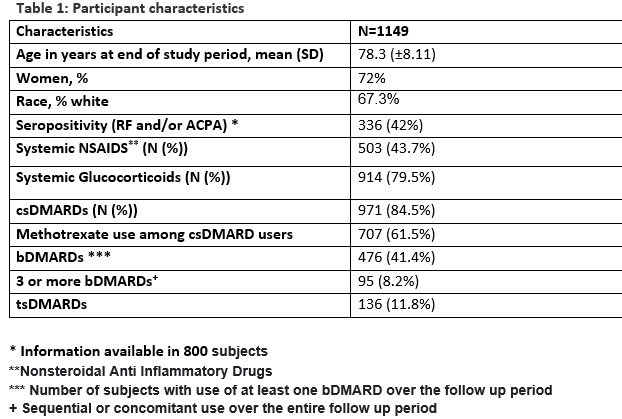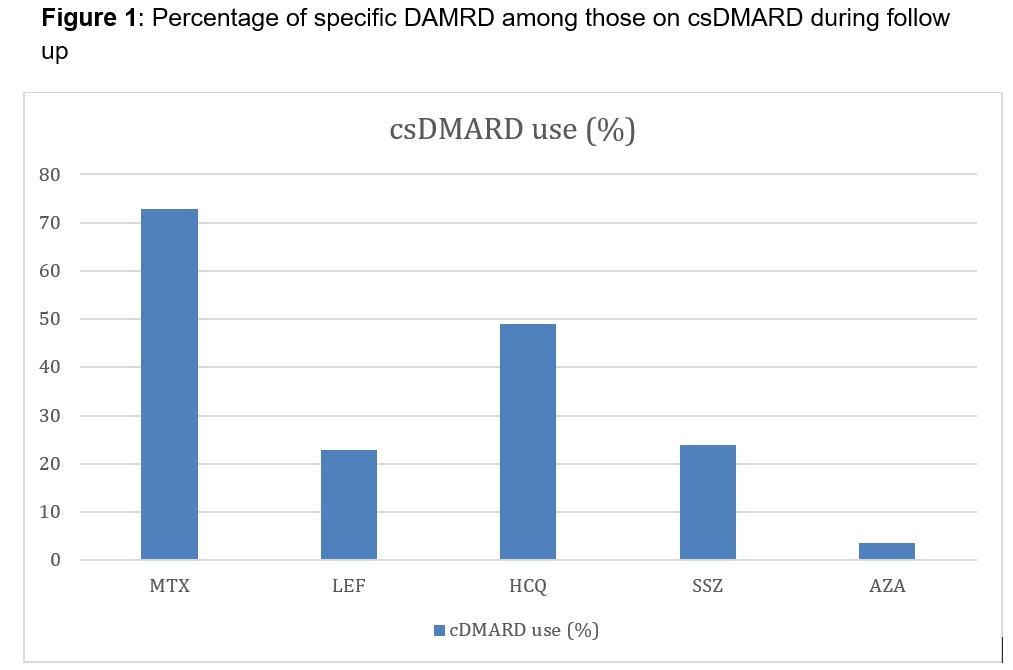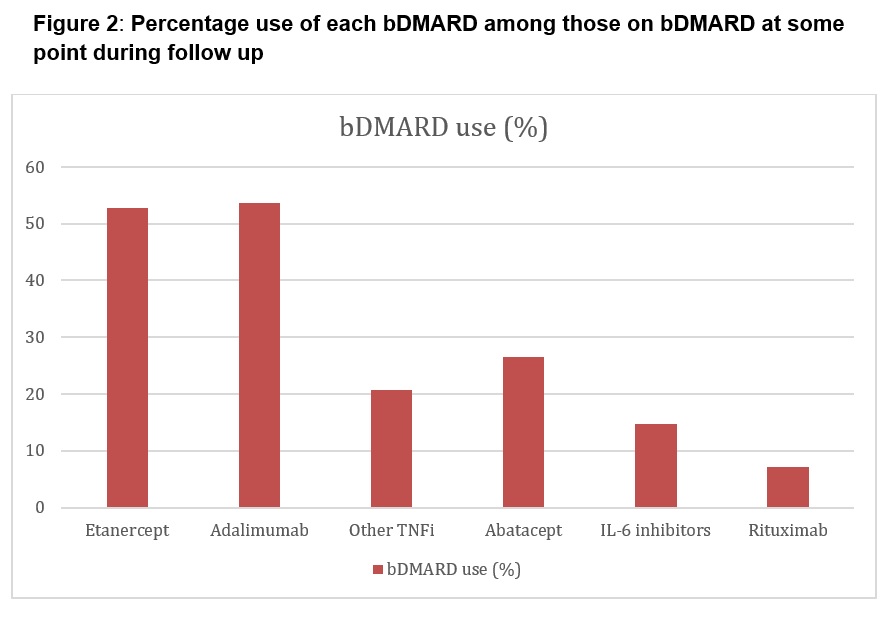Session Information
Date: Sunday, November 17, 2024
Title: RA – Treatment Poster II
Session Type: Poster Session B
Session Time: 10:30AM-12:30PM
Background/Purpose: Disease modifying anti-rheumatic drug (DMARD) use in older adults with rheumatoid arthritis (RA) is challenging due to unique geriatric issues, such as multimorbidity, polypharmacy, frailty, cognitive impairment and altered autoimmunity. Overall DMARD use in older adults with RA is reportedly low at around 30-50%. We aimed to describe DMARD utilization patterns in older adults with RA using real-world data in an urban tertiary academic medical center.
Methods: In this retrospective study using electronic health record data from Beth Israel Deaconess Medical Center (BIDMC), Boston, we identified patients age ≥65 years with a diagnosis of RA for atleast 12 months based on ICD codes (ICD9 714.0 or ICD10 M06.9 or M06.00 or M06.4 or M05 or M05.9) followed between January 2014, and April 2024 until death or end of study follow up. We excluded those with concomitant diagnosis of psoriasis, inflammatory bowel disease, axial spondylarthritis, SLE, SSc, MCTD, inflammatory idiopathic myopathies, Behcet syndrome, sarcoidosis, and crystal arthritis. Information on demographics, clinical, serological profile, and medications utilization pattern. Descriptive statistics were used, with continuous variables presented as mean ± standard deviation (SD) when there was a normal distribution and as median and interquartile range when not. Categorical variables were presented with frequencies and percentages.
Results: We identified 1149 older adults with RA who were followed in BIDMC for an average of 7 years (±SD 3.2). The mean age of the study population was 78.3 years, comprised mostly women (72%) and predominantly white race (67.3%). Participant characteristics at the end of the follow up period and use of systemic NSAIDS, systemic glucocorticoids and DMARDs over the follow up period is described in Table 1. The patterns of csDMARD and bDMARDs use in Figures 1 and 2, respectively. The switch between DMARD class sequentially and concomitant use of multiple DMARDs was not uncommon.
Conclusion: In this study using real world data, older adults with RA at a tertiary care center had a higher use of any csDMARD and bDMARD use compared to what has been previous reported among Medicare beneficaries. Future studies in older RA subject should focus on describing initiation and maintenance of DMARDS, adjusting for disease activity in other clinical settings and geographic variation.
To cite this abstract in AMA style:
Seelmann D, Lee J, Misra D. DMARD Utilization Pattern in Older Adults with Rheumatoid Arthritis [abstract]. Arthritis Rheumatol. 2024; 76 (suppl 9). https://acrabstracts.org/abstract/dmard-utilization-pattern-in-older-adults-with-rheumatoid-arthritis/. Accessed .« Back to ACR Convergence 2024
ACR Meeting Abstracts - https://acrabstracts.org/abstract/dmard-utilization-pattern-in-older-adults-with-rheumatoid-arthritis/



